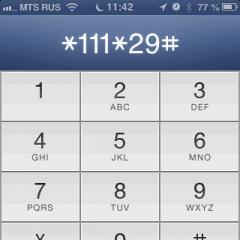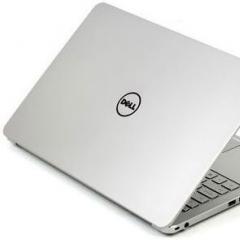The new cooler is humming. Why is my computer noisy?
If your fan hums too loudly when working with your laptop, then these instructions are intended specifically for you. In this article we will look at why the fan is noisy and what should be done to get rid of the annoying sound.
Causes
There are several obvious reasons why a laptop is buzzing a lot:
- Overheating and, as a consequence, high rotation speed of the cooler blades, which leads to a high noise level.
- Dust and dirt in the cooling system, which interfere with its full and uninterrupted functioning.
Everything is quite simple, but there are a couple of nuances. For example, if your device makes a lot of noise only when certain games or programs are on, then there is no need to worry or take any action as this is quite normal.

All that is needed in this situation is preventive action every six months in the form. If your laptop makes a lot of noise when programs that do not load the computer are running, you should try to do something.
What actions can you take?
There are several options to correct these problems:
- Cleaning from dust and dirt;
- BIOS update;
- Using a program to change the cooler rotation speed;
Cleaning from dirt and dust
If the cooler in your laptop begins to make a lot of noise and overheat, this may mean that it is excessively dirty. It is recommended to regularly clean the laptop, but for this it is not at all necessary to take it to a service center, because everything can be done at home.
If you decide to clean your laptop yourself, you need to:

If there was a lot of dust in the device, then after cleaning you will immediately notice a positive result: the computer will heat up less and work much quieter. However, prevention does not always help, for example, when the mechanism wears out, in which case complete repair may be required.
Updating BIOS and drivers
Developers often release driver and BIOS updates that fix previously made errors. It is in the BIOS that the temperature of the sensors corresponds to the speed of rotation of the cooler blades. Therefore, updating the software may help eliminate the fan noise.
Sites with the necessary drivers for users of the most popular models:
- Acer;
- HP;
- Toshiba;
- Lenovo;
Changing the cooler rotation speed
If the fan in your laptop is making too much noise, then perhaps a special program called SpeedFan will help you, which will allow you to change the speed of the blades. It receives all the necessary information from the temperature sensors that your laptop is equipped with and provides options based on the received data. By correctly adjusting the indicators, you can eliminate the cooler noise by limiting its rotation speed.

If the processor temperature rises too high, the program will automatically start the fan at full power to protect the laptop from overheating. Therefore, if after the settings you made, the laptop began to make noise, then there is nothing to worry about.
How to prevent and reduce laptop noise?

Now you know how to quickly and without any problems reduce fan noise yourself at home, and you can help not only yourself, but also your friends and family.
Typically, portable computers—notebooks, laptops, netbooks, and ultrabooks—are relatively quiet. Special components are developed for them that have lower heat transfer and a quiet cooling system is installed. But sooner or later, any owner of such a device may encounter the fact that the computer begins to make sounds - buzzing and buzzing. You shouldn’t be immediately scared by this and run headlong into a service center or call a computer technician. First you should try to figure it out yourself - why is my laptop humming??
The situations that arise can be divided into two groups:
The new laptop suddenly buzzed
The first reaction of an ordinary user is “broke”! Not really. It’s just that the laptop gets very hot and therefore the cooler (fan) hums, trying to cool the processor. There are several ways to deal with this.
1. Setting up the power supply scheme.
Powerful and fast laptops, at maximum operating parameters, usually get very hot. However, in most cases, maximum performance is not needed (of course, if you are not a fan of games). We do the following: press the key combination Win+R. The Run window will open:

Enter the command powercfg.cpl and click on the OK button. The Windows operating system power settings window will open:

If your power plan is set to “High Performance”, change it to “Balanced”. After that, close the window and reboot.
2. Using a laptop stand:
Now in any more or less large store that sells computers and components, you can buy a special cooling pad for a laptop:

It is usually a special platform with built-in fans that drive cool air to the bottom of the laptop, which heats up the most. This is a very convenient thing, which also allows you to position the laptop more comfortably and prevents anything from blocking the cooling system holes on its case.
Old laptop hums
If your old comrade suddenly started making noise with his cooler, then try to remember when you cleaned it. Would you like to see what its cooling system looks like after 2-3 years of active use:

Dust and hair clog the radiator to the point where airflow can barely pass through it. The cooler begins to blow hot air. It is clear that this is not enough and the system begins to increase the fan speed. That's why the laptop starts humming because it simply can't handle the heat. The solution is simple - cleaning and purging.
If you yourself can unscrew a few screws on the bottom of the case and get to the fan, then clean it carefully, first with a dry and then a damp cotton swab:

Blowing out the radiator is also not difficult - you either need to buy a can of compressed air at a computer store, or use some weak car compressor. As an option, you can blow it out with an old Soviet vacuum cleaner that can operate in blowing mode. The main thing is not to try to clean with a vacuum cleaner - this can end sadly.
And finally, a piece of advice - try to place the laptop on a flat, hard surface so as not to block the ventilation holes under any circumstances. It is also advisable to place it in a normally ventilated place. Then it will delight you with normal and quiet operation for a long time.
Hello, dear readers of my blog! In this article, I will talk about the main reasons why the cooler in a laptop and personal computer can make a lot of noise, as well as ways to eliminate them.
Causes of cooler noise in laptops and computers
- Modern computer games. If the cooler only makes noise when you play modern games, then this is quite normal. During simple operation, the cooler produces about one tenth of its power. But when you run a heavy modern toy that requires a lot of resources, your laptop or computer starts to heat up very much and the fan has to increase speed to cool the system and because of this the noise increases.
- Software glitch. If the fan suddenly begins to make noise during operation that did not bother it before, then a software failure may have occurred. Just turn off your laptop or PC and boot it up in 15-20 minutes. If this was the problem, then the strong fan noise will disappear.
- Large amount of dust. One of the most common reasons. It settles both on the fan blades and on the honeycomb of the radiator, which fits tightly to the cooler. And when the radiator honeycombs become clogged with dust, the air flow coming from the fan cannot fully pass through the radiator and thus your fan has to produce more power in order to produce the amount of air needed for normal cooling of the processor and video card. In order to clean the radiator and fan blades from dust, you will have to disassemble the laptop. My advice to you is that it is better to entrust this work to professionals in special services. If you do everything yourself, then when you get to the cooler, carefully collect everything from the blades and honeycombs of the radiator with a cotton swab, and collect the remaining dust with a vacuum cleaner. It will also be useful if you lubricate the cooler. For lubrication, use silicone grease or household machine oil. With a personal computer, everything is much easier than with a laptop. Just open the side cover and the whole system is in front of you. A PC has several coolers that cool the power supply, processor and video card. The difficulty here is that it is difficult to determine what exactly the noise is making. You can simply, when the PC is running, use a cotton swab to stop each fan one by one until you find the one that makes a lot of noise. After that, clean it from dust and lubricate it.
- Bearing wear. This reason is already a point of no return. If the bearing wears out, you will have to replace the fan; there are no other options.
Conclusion
Here are the main 4 reasons. But, as a rule, the most common reasons are a large amount of dust and bearing wear. The first two reasons are very rare, but everything happens sometimes too.



